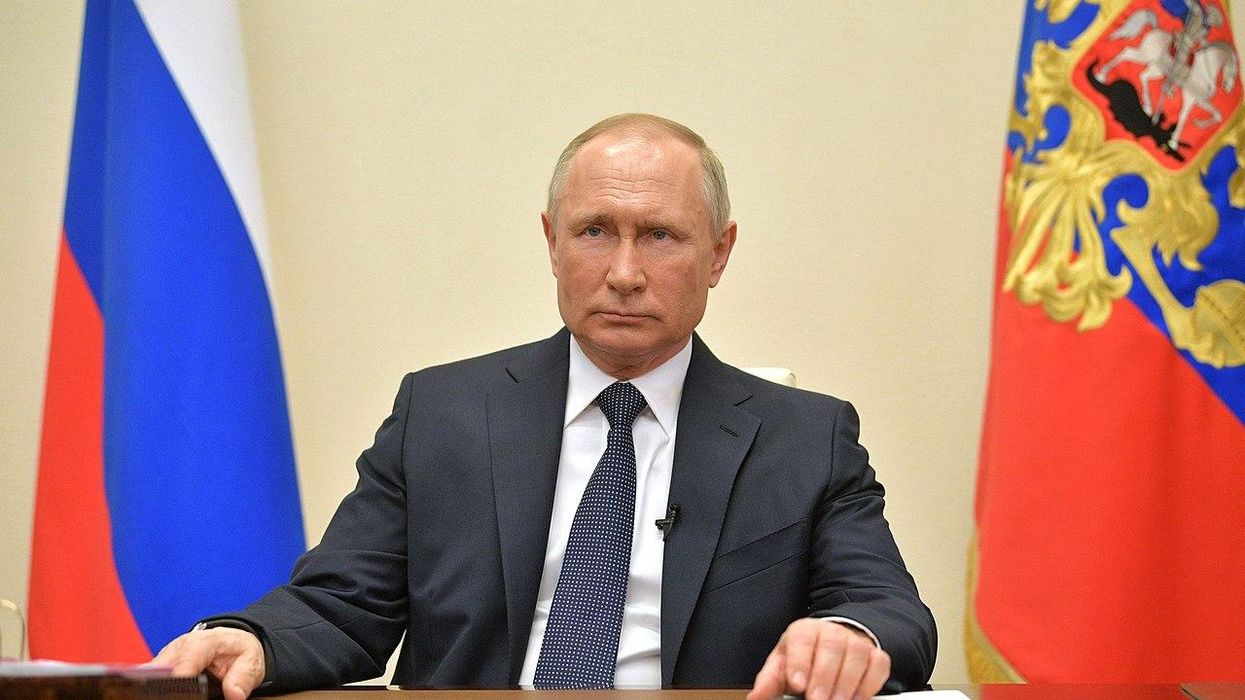Journalist: How far should 'anti-Russia backlash' and boycotts over Ukraine go?

Russian President Vladimir Putin in April 2020 (Wikimedia Commons).
August 26, 2022 | 07:30AM ETWorld
Russia’s invasion of Ukraine, launched half a year ago on February 24, has been the worst military conflict in Europe since World War 2 — and in late August, the gravity of the conflict was underscored by disturbing reports on Russian shelling near the Zaporizhzhya Nuclear Power Plant outside Russia-occupied Enerhodar, Ukraine. Zaporizhzhya is six times larger than the nuclear facility in Chernobyl, and Enerhodar residents are warning that the potentially disastrous situation with Zaporizhzhya poses a threat not only to Ukraine, but to Europe in general.
The Biden Administration and its European allies in the North Atlantic Treaty Organization (NATO) continue to sanction Russia economically in response to the conflict, although President Joe Biden remains adamantly opposed to putting U.S. “boots on the ground” in Ukraine. Some critics of Russian President Vladimir Putin also favor a total boycott of all Russian artists, ballet dancers and musicians — a subject that libertarian journalist Cathy Young grapples with in an article published by the conservative website The Bulwark on August 26. Young stresses that many people enjoy Russian culture but are vehement critics of Putin and invasion of Ukraine.
“Should the anti-Russia backlash triggered by the Kremlin’s war in Ukraine spare Russian culture, whether in the form of performances by modern-day Russian musicians or courses on classical Russian literature?” Young writes. “This question has stoked polemics since the early days of the invasion, when Russian artists such as singer Anna Netrebko, conductor Valery Gergiev, and pianist Alexander Malofeev found their contracts dropped and their concerts canceled, and when an Italian university postponed, though it later reinstated, a lecture course on Fyodor Dostoyevsky.”
READ MORE: Ukrainians 'fearing the worst results' after Russian troops cut power to Zaporizhzhya nuclear plant
Young continues, “Even many people who fully support the Ukrainian side feel that ‘canceling’ Russian artists and writers, including long-dead ones, for Vladimir Putin’s or the Russian army’s sins is taking things too far; meanwhile, pro-Russian and Ukraine-skeptical voices invoke such cancellations as evidence of mindless Russophobic zeal in the pro-Ukraine corner. But there are also those who say that Russian culture, current or past, cannot be separated from Russian imperialism and militant nationalism — and that promoters of this aggressive ideology must be held to account.”
The journalist goes on to say that “some things seem straight-forward” when it comes to Ukraine and that opponents of the invasion should not “collaborate” with “any state-run or state-affiliated Russian cultural entities, including private organizations with government connections.” But “other cases,” she adds, are “more complicated.”
“The soprano Anna Netrebko did condemn the invasion, but belatedly and perhaps opportunistically; what’s more, she has long lent her artistic prestige to the image-building of Putin’s Russia,” Young observes. “But there are also people like Malofeev, or cellist Anastasia Kobekina, who had concerts canceled despite speaking out against the war from the start. As a new article in the New York Times Magazine details, even dissident artists who have vocally opposed the war and left Russia to escape political persecution, such as theater and film director Kirill Serebrennikov and filmmaker Anastasia Palchikova, have found their projects jeopardized. And what to make of cancellations directed at Russian material, from Tchaikovsky concerts to an ‘Anna Karenina’ adaptation on Netflix?”
Young points out that some critics of the invasion believe that much Russian art is closely linked to Russian “nationalist and imperialist ideology.”
“No, Russian works shouldn’t be dropped simply because they’re Russian,” Young writes. “Yes, it’s frustrating for someone like Serebrennikov to be forced out of his own country for his opposition to the regime and then be treated in the West as tarnished by a presumed association with that regime. But to describe cultural boycotts as ‘unbearable’ when cities are being reduced to rubble, millions have lost their homes, tens of thousands have lost their lives, and untold numbers have been victims of wanton cruelty is, to put it mildly, tone-deaf.”
READ MORE: State Department 'urges' Americans to leave Ukraine: 'Conditions may deteriorate without warning'